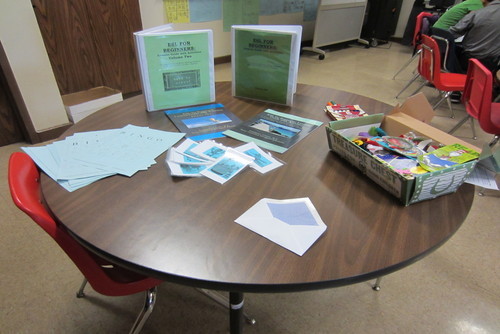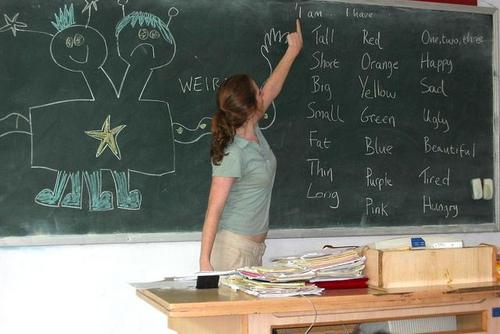Usually, with public schools, a translator is provided for native English teachers – to deal with discipline but also to help during the class. In some cases, the translator is the actual teacher of the class, and the English teacher acts as more of a helper.
However, teaching without a translator can be as much fun and even less stressful than with one. Without a translator, the English teacher is in charge, expected to lead and format the class (possibly around a set curriculum) and this allows for a lot of freedom when planning lessons.
The trick is to keep the class fast paced and entertaining, especially when teaching children (these tricks may be less suited to teaching older students). Also be prepared to be foolish and silly. Chances are, the students will not understand a lot of English, so instructions, rules, and concepts must be accompanied by body language, demonstrations, and lots and lots of props.
The sillier the teacher is, the more the children will want to watch him or her, and the better the class with stay focused. Besides, learning is fun, and so is English, so it’s the teacher’s job to make it so.
Here are some easy tricks for making an English lesson without a translator painless for everyone involved.
Skits
Use them well and infrequently and these can be an enjoyable part of the lesson. Skits should be short, with very simple dialogue, lots of dramatic slap-stick comedy, and ridiculous plots. It’s a good idea for the teacher to do them the first few times, but the students will mostly likely want to get involved, and it’s the perfect way for children to practice speaking out loud.
Games
Games are an excellent way to begin and end lessons. Especially when students are shy at first, games can be a great ice-breaker to get them talking.
Hangman is especially good, as it tests knowledge of the alphabet, spelling, and basic words, and it’s easy enough for beginning students. Other games can be good for the ends of lessons, when students have done boardwork or bookwork. Always intersperse more “thinking” heavy work with lighter work like games; this will ensure that students don’t get burned out and bored.
A good game to use for learning vocabulary is a regular board game with tiles. Draw this out on the board, use magnetized cut-outs, and have students race to get to the end, picking up words and prizes along the way. A sticky ball and target game is perfect for learning directions and taking a magnet around a map on the board. Get creative with games, but make sure students don’t get too used to having fun and not actually working!
Multi-media
Videos, music, and power-points are a great addition to any lesson. English teachers, while teaching the language, should also strive to open their students’ minds to Western culture; videos, music, and pictures from home are great ways to demonstrate what another culture is like.
Remember, a lot of students in foreign countries may have never visited America or Europe, and possibly have never met someone from there, so sharing culture is extremely important.
Instructing
Teachers need to be very aware of how they are speaking. Without a translator, most of what a teacher says is going to be incomprehensible to students with low level English.
Directions and rules should be spoken very slowly, and repeated often. It may be very frustrating to repeat commands or words dozens of times, but it is necessary in order to really imprint the sounds and patterns. Teachers also need to be aware of how much verbal clutter they use.
Words or phrases like “and now,” “next we’ll look at,” etc, need to be cut out completely. Students who are paying attention will get lost when extra words are added, or become frustrated if they don’t understand. Teachers need to try and use only words students will understand, or that are directly related to the lesson material.
These suggestions should make teaching without a translator easy and enjoyable. It can be very rewarding to lead a class alone, and with effort and some creativity, students shouldn’t have any trouble following along.
By Audra Mae Edmonson
Audra taught English in Taiwan for a year, and fell in love with teaching and Asia. You can find her at her blog – The Flying Armchair, on Twitter @Ottermei, or on Facebook at The Flying Armchair.
Related Pages








